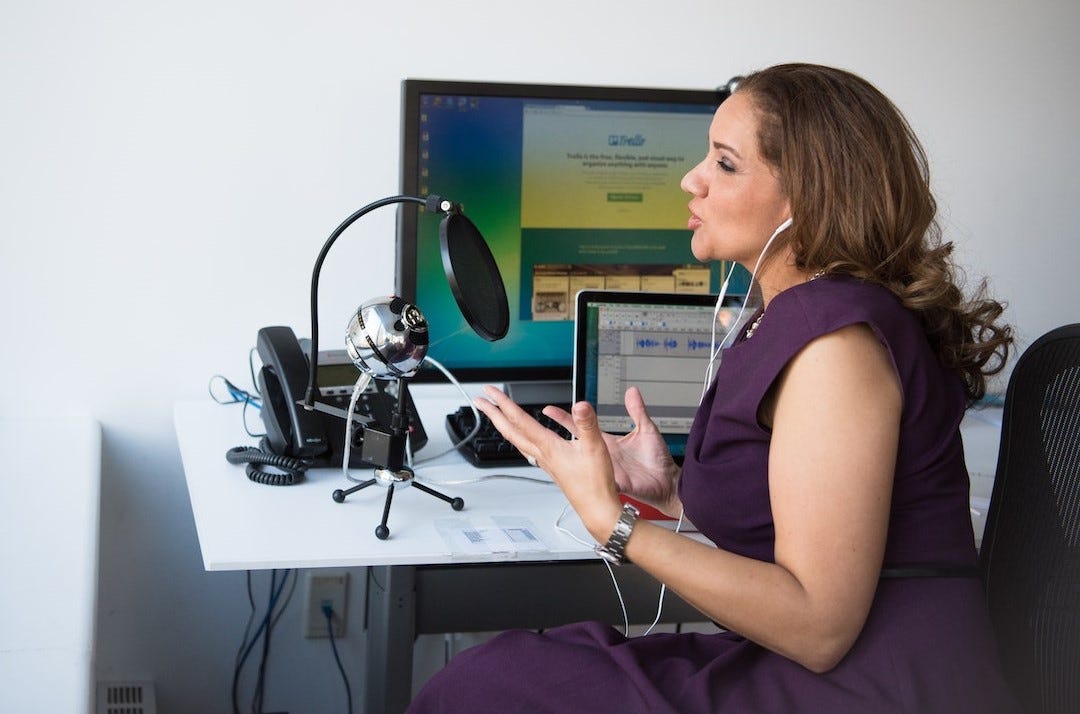Here's what I tell urbanism advocates who want advice on keeping their spirits lifted up
Writing regularly will help you learn more about your areas of interest *and* help you be a more persuasive advocate. Write, publish, repeat.
Since the nature of my work leads me to collaborate with advocates, I’ve been asked multiple times for encouragement and/or advice for urbanism advocacy. Pushing for human-scale design can feel like an overwhelming mission, but anyone involved in it will tell you the experience is rewarding. (Even when the outcomes take years to be visible in person.)
Here’s my advice: Write. Publish. Repeat.
I’m shamelessly stealing that catchphrase from Johnny B. Truant, Sean Platt, and David Wright, co-authors of this excellent book about self-publishing. I find most people don’t take action from aspirational advice that seems out of reach. But what I’m suggesting isn’t shoot-the-moon habit changing, it’s a practical way to grow and nurture your own professional network.
Writing about your observations, ideas, and dreams will improve your storytelling skills. If you’re a consultant, your comfort level will increase when clients ask about policies, projects, and industry trends. Journaling, or even post-it note chicken scratch is fine if that helps you form a writing habit. But I strongly recommend blogging.
Blog, even if you never publish your work for the world to see. While you’re mustering up the courage, blog to yourself in a Google Doc. But just to be clear, I do hope you publish. I do hope you show us your work.
Search engines are always improving their ability to find material that your clients and potential clients are trying to uncover. Wouldn’t it be great if your blog posts were the ones showing up when a client was Googling how to implement a tactical urbanism project (or whatever you’re into)? Unlike social media, blog posts have a long life span.
Money should not be a concern when it comes to writing. Sure, you can purchase a website domain and host your own blog. But there are free options. Take advantage of LinkedIn Publishing, Medium.com, Wordpress.com, or my new favorite – Substack.
You can start posting on any of those without any training (or payment), and they’re designed for users to intuitively share posts on social media channels. Write a few hundred words on Substack about how local zoning ruined the housing market, and then watch readers share your post to LinkedIn, Twitter, and Facebook.
Of course any blog platform, like social media, will change over time. The only way to control your content forever is to buy a domain and pay for online hosting. It is worth considering, and typically only costs about one lunch per month. If you’re unsure where to start with domain naming, see if your name is available to purchase (FirstnameLastname.com).
If you’re blogging on behalf of your employer, I’m sure you’ve already got a domain in place (i.e. Acme Engineering dot com). In that case, it’s just a matter of forming a writing habit and asking the marketing department to get you in the publishing rotation.
Write Talk. Publish. Repeat.
One other way to exercise writing muscles is to podcast. You don’t need to be Joe Rogan or NPR. Just treat podcasting as blogging with an audio option. There are several ways to create a podcast, most of which are straightforward and don’t require a computer science degree.
I started podcasting in January 2013, following almost 6 months of research and preparation. Back then, it was a level of prep on par with Y2K doomers. Soooo much work.
Trust me when I say you do not need that much lead up time anymore. Smartphones have good enough mics that you can get decent audio quality by recording voice notes on a free mobile app.
All these years later, podcasting is exploding as a content distribution method. People are listening during commutes, at the gym, and sitting at a desk creating GIS maps for a corridor study. Audio content is only going to grow.
There’s an ever-increasing need for content providers, especially in the city planning and urbanism niches. If that’s your jam, you have an opportunity to fill market gaps. A blog with a human voice increases the likelihood that listeners will connect with you and trust your work.
Start simple. Summarize an interesting article from your professional circles. Highlight the hero, conflict, and resolution. Then do it again. And again. Pretty soon muscle memory will keep your brain in storytelling mode.
Write. Publish. Repeat.






It applies to everything!